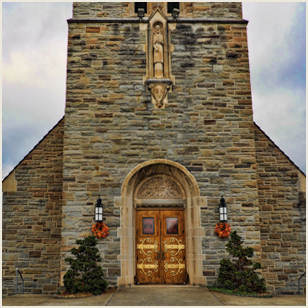Detachment, Grace, Page: Quotes, Quote Topic
Anyone, therefore, who shall with simplicity of heart direct his intention to God and free himself from all inordinate love or dislike for any creature will be most fit to receive grace and will be worthy of the gift of devotion. For where the Lord finds the vessel empty He pours down His blessing.
— Thomas à Kempis (1380-1471)
Detachment, Isaac of Syria (Seventh Century), Page: Quotes, Quote Author, Quote Topic
As a man whose head is under water cannot inhale pure air, so a man whose thoughts are plunged into the cares of this world cannot absorb the sensations of that new world.
–Saint Isaac of Syria (Seventh Century)
Detachment, Page: Quotes, Quote Topic
Nothing so mars and defiles the heart of man as impure attachment to created things.
–Thomas a Kempis (1380-1471)
Detachment, Page: Quotes, Quote Topic
How, then, should the person worthy of Christ’s great name behave? What can he do except to always discern his thoughts, words and deeds, and to see whether or not they are of Christ or are alien to him? Much skill is needed here for discernment. Anything effected, thought or said through passion has no association with Christ but bears the adversary’s mark; smearing the soul’s pearl with passion as if with mud, it corrupts the precious stone’s brightness. But a state free from every passion looks to the author of detachment, Christ. He who draws to himself thoughts as from a pure, incorruptible fountain will resemble the prototype as water drawn into a jar resembles water gushing from a fountain.
–Saint Gregory of Nyssa (c. 335 – c. 395)
Detachment, Page: Quotes, Quote Topic
The joys of this world lead to eternal sorrow; but those who persevere in following the joys that are to be found in the will of the Lord will find themselves led to an enduring, an eternal world.
— Ambrosiaster (Fourth Century)
Detachment, Page: Quotes, Quote Topic
You will never enjoy the sweetness of a quiet prayer unless you shut your mind to all worldly desires and temporal affairs.
— Saint Norbert (c. 1080-1134)

